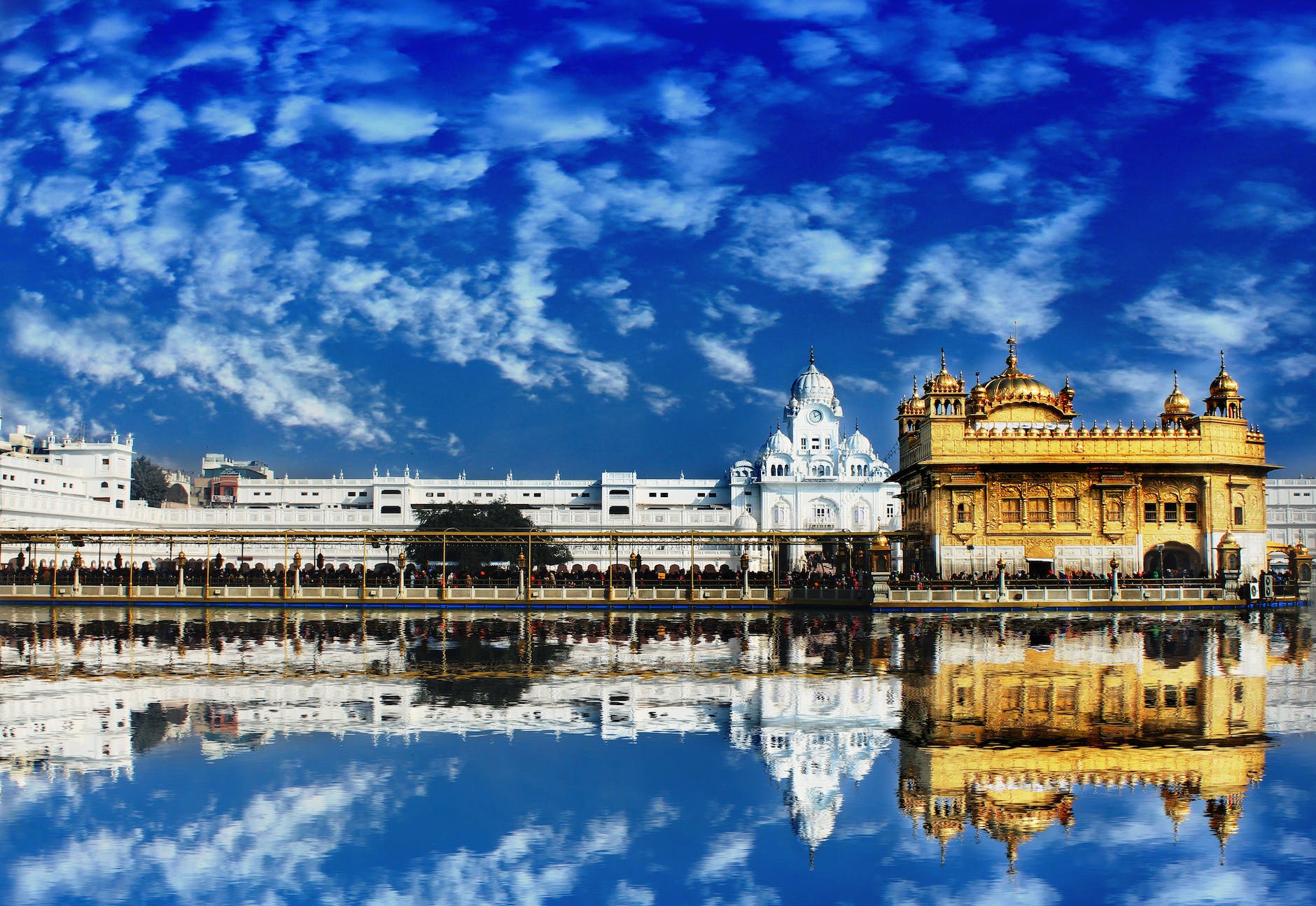India, a country known for its vibrant culture and rich heritage, has not been immune to the forces of globalization. With the world becoming increasingly interconnected, the impacts of globalization on the Indian industry and market have been profound. Globalization, characterized by growing trade, foreign investment, and technological advancements, has left an indelible mark on this diverse nation. The impact of this phenomenon on India’s economy, society, and culture has been profound and multifaceted.
On one hand, globalization has opened up new avenues for economic growth and development in the Indian industry. Foreign direct investment (FDI) has poured into the country, creating jobs and boosting economies. However, it is important to recognize that globalization also brings impacts. As India integrates further into the global economy, it must navigate complex issues such as income inequality and cultural assimilation.
From examining government policies to exploring societal changes, we will uncover how globalization has shaped the Indian economy and Indian industry, making them an integral part of our interconnected world. So let’s take a closer look at how globalization has shaped modern-day India and its impact on the national economy.
Advantages of Globalisation in India
- Increased foreign direct investment (FDI) has significantly boosted the Indian economy. FDI has poured into the country, bringing in capital and creating job opportunities for the Indian workforce. This influx of investment has propelled various sectors, such as manufacturing, services, and technology, leading to overall economic development. The globalization of economies and the emphasis on free trade have contributed to this positive trend in industrial nations like India.
- Globalisation has enabled Indian businesses to tap into foreign countries, boosting their exports and bolstering the economy. With increased access to international markets, Indian companies have expanded their customer base globally, driving revenue growth and enhancing the reputation of Indian products worldwide. This is all thanks to the benefits of free trade.
- Through globalization, the Indian industry has gained access to advanced technology and knowledge transfer from developed countries, which has accelerated innovation in various sectors of the Indian economy. This exchange of knowledge and expertise has fueled innovation in industries like information technology, healthcare, and renewable energy, contributing to the growth of the Indian economy in the era of free trade.
Globalisation has had a significant impact on India’s economy, specifically on the Indian industry, FDI, and trade.
- Increased foreign direct investment (FDI) leading to economic growth.
- The expansion of export markets in the era of globalization has led to higher revenues for Indian businesses, boosting the economy and promoting trade. This growth is also attributed to increased foreign direct investment (FDI) flowing into the country.
- Accelerated innovation through access to advanced technology and knowledge transfer is crucial for the Indian industry to thrive in the era of globalization and trade. The integration of foreign direct investment (FDI) can further enhance this process.
These benefits have contributed towards transforming the Indian industry into a dynamic player on the global stage while driving progress across multiple sectors of its economy. The globalization of India has been facilitated by FDI, attracting investments from various nations.
Effects of Globalisation on Indian Economy
Liberalization policies have allowed for greater participation of foreign companies in the Indian market.
Foreign companies have been able to enter the Indian market more freely due to globalization and the liberalization policies implemented. This has resulted in increased competition, FDI, and access to a wider range of products and services for consumers, benefiting the Indian economy.
- Foreign direct investment (FDI) has surged due to globalization, leading to improved infrastructure and technology transfer in the Indian industry. This has facilitated trade between nations.
- Increased employment opportunities have been created in the Indian industry due to globalization and the influx of foreign direct investment (FDI) and trade. Foreign companies setting up operations in India have played a significant role in this aspect.
The service sector, particularly IT outsourcing, has flourished due to globalisation.
The impact of globalization on the Indian economy is evident in the growth of the service sector, specifically through IT outsourcing. Globalization has led to increased foreign direct investment (FDI) and expanded trade between nations.
- India has become a hub for software development, call centers, back-office operations, and trade in the globalized world of Indian industry.
- The process of globalization and increased trade between nations has led multinational corporations from around the world to outsource their services to India, taking advantage of the availability of skilled labor at competitive costs.
However, global competition has also posed challenges for domestic industries.
While globalization has brought numerous benefits to the Indian economy and connected nations around the world, it has also presented challenges for domestic industries.
- Domestic manufacturers face intense competition from cheaper imported goods.
- Traditional sectors such as textiles and handicrafts have struggled to compete in the globalized world with mass-produced items from other nations.
Influence of Globalisation on IT Industry and Social Mobility
The impact of globalization on India, a nation in the world, has been particularly evident in the Information Technology (IT) industry, which has experienced remarkable growth. This sector’s expansion is largely attributed to the presence of multinational corporations (MNCs) and their investments in India. As a result, the country has witnessed a surge in job opportunities for skilled professionals, leading to significant advancements in social mobility.
The following points highlight the influence of globalization on the IT industry and its implications for social mobility in a globalized world. The interconnectedness of nations has greatly impacted the IT industry, leading to both opportunities and challenges for individuals seeking to improve their social mobility.
- The IT industry in India has flourished due to globalization, with MNCs from various nations establishing their operations and outsourcing work to Indian companies. This influx of foreign investment has propelled the growth of this sector.
- Job creation within the IT industry has played a crucial role in enhancing social mobility in the era of globalization. Skilled individuals from different nations have found employment opportunities that offer better wages and improved living standards.
- Globalisation has played a crucial role in fostering innovation within the Indian IT sector. The exposure to advanced technologies and practices employed by industrial nations has led to significant knowledge transfer, contributing to the further growth and development of the industry.
- The rise of globalization and information technology-driven businesses has empowered individuals and nations by providing access to new consumer choices and opportunities for entrepreneurship.
- While globalization has positively impacted social mobility within the IT industry, concerns have emerged regarding job displacement in nations. Automation and outsourcing pose potential threats as companies seek cost-effective measures, potentially affecting workers’ livelihoods in the context of globalization.
- It is important for nations to address the challenges of globalization by investing in upskilling programs and encouraging diversification into other sectors such as manufacturing or the financial sector.
Implications of Globalisation on Indian Society
Adoption of Western Lifestyles and Values among Indian Youth
Globalisation has led to a cultural exchange between nations, greatly influencing Indian society. One significant impact is the adoption of Western lifestyles and values among Indian youth. They are increasingly embracing Western fashion, music, and entertainment, which have become popular through globalization. This shift in cultural preferences can be seen in the way young Indians dress, listen to music, and even interact with others.
Urbanization and Migration for Better Employment Opportunities
Another implication of globalization on Indian society is the increase in urbanization and migration among nations. As people from different nations seek better employment opportunities influenced by global trends, they are flocking to urban areas. The allure of improved living standards and access to modern amenities has driven this trend among nations. With globalization opening up new avenues for work, individuals from rural areas in different nations are moving to cities in search of better livelihoods among nations.
Challenges Faced by Traditional Industries
Globalisation has posed challenges for traditional industries in India, including the handicrafts sector. These artisans face competition from cheap imported goods due to global trade, impacting their livelihoods and the preservation of India’s cultural heritage.
Access to Global Markets and Education in India
Globalisation has had a significant impact on India, particularly in terms of access to global markets and education. Indian businesses have benefited greatly from the opening up of international trade, allowing them to tap into new markets and expand their customer base worldwide. This increased access to the global market has created numerous job opportunities and boosted economic growth in the country, benefiting both India and other nations.
In addition to expanding business prospects, globalization has also facilitated collaborations between nations, such as India, and foreign universities. Through student exchange programs and joint research initiatives, Indian students have gained access to high-quality education and diverse learning experiences. This exposure has helped nurture a globally competitive workforce that can contribute effectively to various industries.
However, it is important to acknowledge the concerns surrounding globalization and brain drain. Talented individuals often choose to migrate abroad for better educational and career prospects in the era of globalization. While this contributes positively to global knowledge sharing, it can lead to a loss of skilled professionals within India due to globalization. Addressing brain drain requires efforts focused on creating attractive employment opportunities domestically, encouraging entrepreneurship in the face of globalization, and improving the overall quality of education to adapt to the challenges of globalization.
Environmental and Natural Resource Challenges due to Globalisation
Rapid industrialization driven by globalization has led to a surge in pollution levels in India. The demand for natural resources, such as water and energy, has intensified with the country’s economic growth. As a result, India faces several environmental and natural resource challenges due to globalization.
- Increased Pollution Levels: The rapid industrial expansion fueled by globalization has caused a significant increase in pollution levels across India. With the outsourcing of manufacturing processes from developed nations to countries like India, the use of chemical substances and unrefined components has risen due to globalization. This has contributed to air, water, and soil pollution.
- Growing Demand for Resources in the Era of Globalization: Globalization has accelerated the demand for resources in India, driven by economic policies. The increased industrial activity necessitates significant amounts of energy and water. The agricultural sector heavily relies on water resources for irrigation purposes. Consequently, there is immense pressure on these resources due to globalization-driven growth.
- Given the text from a blog post, revise the text to insert the keywords. Follow the guidelines.Keywords: globalization
Text: Need for Sustainable Development: To address the negative environmental impact of globalization, it is crucial for India to adopt sustainable development practices. This involves implementing measures that balance economic growth with environmental conservation. By promoting eco-friendly technologies and practices across industries, India can mitigate the adverse effects of rapid industrialization.Revised text: The Need for Sustainable Development in the Era of Globalization: To address the negative environmental impact of globalization, it is crucial for India to adopt sustainable development practices. This involves implementing measures that balance economic growth with environmental conservation. By promoting eco-friendly technologies and practices across industries, India can mitigate the adverse effects of rapid industrial
To overcome these challenges:
- Emphasize Globalization and Sustainable Practices: Encouraging industries to adopt sustainable methods can help reduce pollution levels while supporting economic growth in the context of globalization.
- Efficient Resource Management in the era of globalization: Implementing efficient supply chain systems can optimize resource utilization in various sectors and keep up with the demands of globalization.
- Focus on Renewable Energy Sources: Promoting renewable energy alternatives such as solar or wind power can alleviate the strain on traditional energy sources like petroleum in the era of globalization.
- Address Agricultural Water Usage: Developing innovative techniques for water management in agriculture will ensure optimal usage without depleting valuable water resources.
- Rural Areas Development: Providing infrastructure and support to rural areas will help diversify their economies beyond agriculture and reduce dependency on limited resources.
India, like many other nations, faces environmental and natural resource challenges resulting from globalisation. By prioritizing sustainable development practices and implementing effective resource management strategies, the country can mitigate these challenges while continuing to benefit from global economic integration.
Overall Impact of Globalisation on India
In conclusion, the impact of globalisation on India has been both profound and multifaceted. The advantages are evident in terms of economic growth, increased access to global markets, and advancements in the IT industry. However, there are also implications for Indian society, environmental challenges, and resource management.
Globalisation has brought numerous benefits to India. It has opened up opportunities for trade and investment, leading to economic growth and job creation. The IT industry has particularly flourished due to globalisation, providing a platform for social mobility and technological advancement.
Nevertheless, globalisation has not been without its drawbacks. Indian society has experienced significant changes as traditional values have clashed with Western influences. This cultural shift demands careful consideration to preserve the unique identity of the nation.
Furthermore, globalisation has posed environmental challenges for India. Increased industrialization and consumption patterns have led to pollution and depletion of natural resources. Sustainable practices must be implemented to mitigate these adverse effects.
To navigate the complexities of globalisation effectively, it is crucial for India to prioritize education at all levels. By investing in quality education systems that equip individuals with necessary skills, India can better adapt to the demands of a rapidly changing world.
In conclusion, while globalisation has undoubtedly brought progress and opportunities for India, it is essential to address its implications comprehensively. By embracing sustainable practices, preserving cultural heritage, and prioritizing education, India can harness the benefits while mitigating potential risks associated with global integration.
FAQs
Q: How has globalisation impacted employment in India?
Globalisation has had a significant impact on employment in India by creating new job opportunities across various sectors such as manufacturing, services (particularly IT), and outsourcing industries.
Q: Has globalisation improved living standards in India?
Yes! Globalisation has contributed to improving living standards in India through increased economic growth, higher wages in certain industries like IT services or manufacturing sectors, and access to a wider range of consumer goods.
Q: What are the environmental challenges faced by India due to globalisation?
India has faced environmental challenges such as increased pollution levels, depletion of natural resources, and climate change impacts resulting from industrialization and consumption patterns associated with globalisation.
Q: How has globalisation affected Indian culture?
Globalisation has influenced Indian culture by introducing Western influences and changing societal norms. This cultural shift has led to both positive and negative consequences, requiring careful consideration to preserve the unique identity of the nation.
Q: What role does education play in navigating globalisation for India?
Education plays a crucial role in equipping individuals with the necessary skills to adapt to the demands of a rapidly changing world. By prioritizing education at all levels, India can effectively navigate the complexities of globalisation and ensure its citizens are prepared for future challenges.


